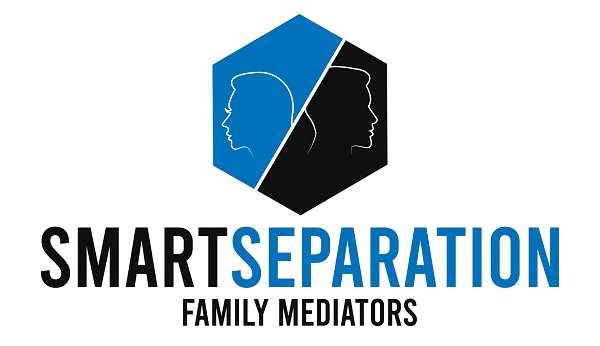Understanding Divorce Mediation Fees in Ontario
Divorce or separation mediation in Ontario is typically charged through one of three common pricing models:
- Hourly rate: Most mediators bill by the hour, often requiring a deposit or retainer in advance.
- Flat‑fee or package rate: Certain mediators offer bundled services or set fees per session or per package.
- Per‑session rate: Less common, but some charge a fixed fee for each mediated session.
The choice between these depends on your mediator’s practice and your level of comfort with cost predictability versus flexibility.
Typical Cost Range per Hour in Ontario
Private mediation costs can vary widely depending on the mediator’s credentials, experience and location:
- $150–$500 per hour is the general range seen across Ontario.
- In larger urban centres such as Toronto, you may find experienced mediators charging around $300+ per hour.
- A specific example: one practice suggests a total per‑person outlay of under $2,500 and a rate of $145/hour plus HS.
- We offer fixed mediation packages ranging from $2599 to $3,599 per couple, depending on complexity.
Per‑session flat‑fee examples:
- One source cites $200–$500 per session, with fees influenced by mediator experience and case complexity.
Overall, couples can typically expect mediation to require 3–6 sessions, but of course that depends on how straightforward or complex their circumstances are.
Difference between Private and Government‑Funded Mediation
Government‑funded mediation in Ontario is available through court‑based and Legal Aid initiatives:
- On‑site courthouse mediation: If both parties are attending court, free mediation is often provided on the spot through Family Law Information Centres.
- Off‑site subsidised mediation: Mediators outside the courthouse may offer fees based on a sliding scale, calculated from each party’s yearly income and number of dependants. Fees may range from as little as $5 per hour (for very low income) up to about $105 per hour for higher‑income individuals without dependants.
Legal Aid Ontario (LAO) also offers a dedicated mediation service:
- Eligible individuals (based on means testing) may participate free of charge, including mediation to resolve parenting, access, child or spousal support, and property issues.
- If one is not eligible for full Legal Aid, LAO can still refer to subsidised or sliding‑scale court‑connected mediators.
Summary Table
| Type of Mediation | Typical Rate | Estimated Total Cost |
| Private (hourly) | $150–$500/hr | Approx. $2,500–$3,500 per party |
| Private (per session) | $200–$500/session | Depends on # of sessions |
| Flat‑fee packages | $2599–$3,599/Couple | Often covers multiple sessions |
| Courthouse (on‑site) | Free | $0 |
| Subsidised off‑site | $5–$105/hr (based on income) | Highly variable, very affordable |
| Legal Aid Ontario | Free (if eligible) | $0 |
What’s Included in the Cost
Intake Consultations and Mediation Sessions
The process usually begins with individual intake consultations, where each party meets privately with the mediator to discuss concerns, goals, and any safety or communication issues. These consultations help the mediator assess suitability and prepare for joint sessions.
The mediation sessions themselves are the core component—structured meetings where the mediator facilitates discussions on parenting, property division, support, and other matters. Depending on complexity, couples may need anywhere from 1 to 5 sessions, each lasting 1.5 to 3 hours.
Drafting of the Memorandum of Understanding (MOU)
Once both parties reach an agreement, the mediator will typically draft a Memorandum of Understanding (MOU). This document outlines the terms agreed upon during mediation, including decisions around child custody, spousal support, property division, and more.
The MOU is not a legally binding contract—it serves as a roadmap for lawyers to prepare a formal separation agreement. However, the clarity and detail of a well-drafted MOU can reduce legal costs later by avoiding confusion or renegotiation.
Administrative Fees, Document Review, and Preparation
Mediation costs also often include administrative support, such as:
- Preparing and managing paperwork
- Scheduling sessions and coordinating communication
- Reviewing submitted financial disclosures or parenting plans
- Basic document review to ensure understanding of the issues discussed
Factors That Affect the Total Cost
Complexity of the Issues
The more complex your situation, the more time and expertise will be required to reach a resolution. For example:
- Parenting arrangements involving shared custody, special needs, or long-distance schedules often take longer to negotiate.
- Property division becomes more complicated when there are multiple assets, pensions, business interests, or real estate involved.
- Spousal or child support calculations may require in-depth financial disclosure and analysis.
Toronto mediators typically charge more or require more sessions for high-conflict or complex cases, which increases the overall cost.
Number of Sessions Required
The number of mediation sessions is one of the biggest cost drivers. Some couples can resolve their issues in a single meeting, while others may need three to five sessions—or more—to work through everything.
Each session may last 1.5 to 3 hours, and mediators typically bill for each hour of time spent. Additionally, some may charge for time spent outside the sessions reviewing documents or preparing the Memorandum of Understanding (MOU).
Whether Lawyers Are Involved Before or After Mediation
Although mediation is designed to avoid litigation, legal support is still important—especially to review the final agreement and provide independent legal advice (ILA).
- Some couples choose to consult lawyers before mediation to understand their rights and legal options.
- Others involve lawyers after mediation to review and formalize the MOU into a binding separation agreement.
- In higher-conflict cases, lawyers may also attend the sessions—adding to the total cost if billed separately.
Comparing Mediation Costs to Court Fees
Divorce litigation in Ontario is significantly more expensive than mediation. On average:
- A contested divorce that proceeds to court can cost between $5,000 and $25,000 per person—or more—depending on the complexity of the issues and how long the case drags on.
- Even relatively simple contested matters involving spousal support, child custody, or property division can escalate quickly if multiple court appearances or motions are required.
- Additional expenses may include court filing fees, expert reports, custody assessments, and lawyer retainers.
In contrast, private mediation may cost $2,500 to $4,000 in total, often split between both parties.
Is Divorce Mediation Worth the Investment?
Long-Term Financial and Emotional Benefits
While private mediation may still cost several thousand dollars, it is significantly less expensive than prolonged litigation. More importantly, mediation can help preserve relationships, reduce stress, and prevent the emotional toll often associated with adversarial court battles.
Couples who use mediation often report:
- Lower legal expenses overall
- Fewer delays and disruptions to daily life
- Improved mental well-being during and after separation
These benefits translate into real-world financial savings and a smoother transition into post-divorce life.
Reduced Need for Future Court Intervention
One of the biggest advantages of successful mediation is that it reduces the need to return to court later.
- Agreements reached through mediation are typically customised and mutually agreed upon, making them more likely to be followed.
- With proper legal advice, a mediated agreement can be made legally binding and enforceable, offering long-term stability.
- If issues arise later, former spouses are often more willing to re-negotiate through mediation rather than resort to litigation again.
By resolving conflicts early and constructively, mediation helps build the skills and communication habits needed to address future issues peacefully.
Better Outcomes for Children and Co-Parenting Relationships
Children benefit greatly when their parents avoid high-conflict litigation. Mediation supports a child-focused approach, encouraging cooperative parenting plans and respectful communication.
- Parents are more likely to create balanced and workable custody arrangements in mediation.
- Reduced tension between parents helps children adjust more easily to new family dynamics.
- Ongoing co-parenting is easier when parents begin their separation journey with collaboration, not conflict.
For families in Ontario, mediation lays the foundation for healthier relationships—between former spouses, and between parents and their children.
As an experienced family and divorce mediator in Toronto, I often write blogs to provide insights, tips, and resources on family mediation and divorce in Ontario. Follow my blog to stay informed and empowered during challenging times.



